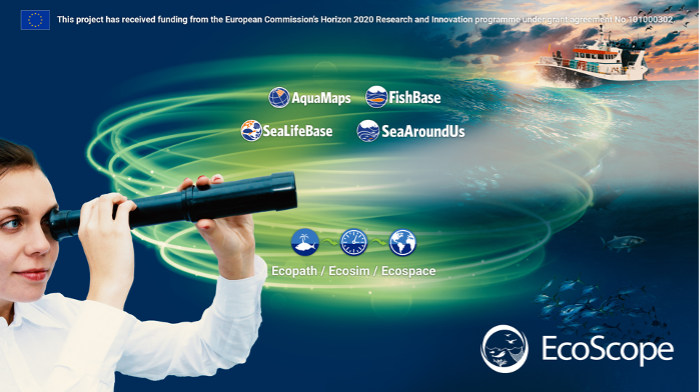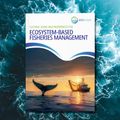‘Urgent paradigm shift needed to ensure balance between food security, healthy seas, fisheries jobs’: EcoScope Editorial pleas for EBFM
A holistic, ecocentric – ecosystem-centred – fishery management approach, incorporating all relevant elements of the natural and human environments, is needed to ensure a balance between food security, healthy sea, sustainable fishery practices, and stable blue-economy and employment, researchers of the EU-funded EcoScope project argued in an editorial published in October 2023 in the scientific journal Frontiers in Marine Science.

Current circumstances underscore the “pressing need for a paradigm shift” towards ecocentric or ecosystem-based fishery management (EBFM), and away from “the anthropocentric ( = human-centred) perception of commercial stock surplus yield” dictating the overall approach until now, the EcoScope researchers said.
“Addressing trade-offs among the wide range of issues involved in EBFM, such as ecological principles, legal mandates, climate change and economic interests will hopefully lead to a shift towards the perception that ecocentric fisheries management, albeit demanding and challenging, is a necessary and feasible option,” they added.
EBFM necessitates an interdisciplinary approach among scientists to gather information on biotic, abiotic and human components of ecosystems and their interactions, including social and economic factors impacting marine ecosystems.
“The design of interactive policies that aim to implement the ecocentric fisheries management is better served through a holistic and integrated perspective to maintain ecosystem integrity,” the researchers explained.
EBFM is informed by various measures, including of human impacts on organisms, habitats and ecosystems, fisheries stocks status and trends, novel indicators of ecosystem health, and others measures, which serve as the baseline for ecosystem status used to define future management targets. Ecosystem models are the key tool to studying marine ecosystems and exploring scenarios of fisheries management and climate change by incorporating temporal and spatial ecosystem dynamics, the researchers noted.
The EcoScope team’s editorial serves as a summary and presentation of the overall research topic titled “Ecocentric Fisheries Management in European Seas: Data Gaps, Base Models and Initial assessments”, which is itself part of the Marine Fisheries, Aquaculture and Living Resources section of the journal. The research topic currently comprises ten research papers on various topics related to EBFM, including six articles focused on Mediterranean ecosystems in which data gaps and deficiencies are significant, as well as two reviews (one on ecosystem modelling and the other identifying gaps in knowledge of non-fish marine organism biological information across Europe’s seas) and one EBFM policy and practice review focusing on global and European policies.
The editorial was written by EcoScope project coordinator Athanassios Tsikliras of the Aristotle University of Thessaloniki (AUTH) School of Biology’s Laboratory of Ichthyology, Gianpaolo Coro of the Alessandro Faedo Institute of Information Science and Technologies, Georgi Daskalov of the Bulgarian Academy of Sciences’ Institute of Biodiversity and Ecosystem Research, David Grémillet of the French National Centre for Scientific Research (CNRS) Centre for Functional and Evolutive Ecology at the University of Montpellier and the University of Cape Town Department of Science and Technology’s FitzPatrick Institute, Marco Scotti of the GEOMAR Helmholtz Centre for Ocean Research Kiel and the Italian National Research Council’s Institute of Biosciences and Bioresources, and Geogrios Sylaios of the Democritus University of Thrace.





